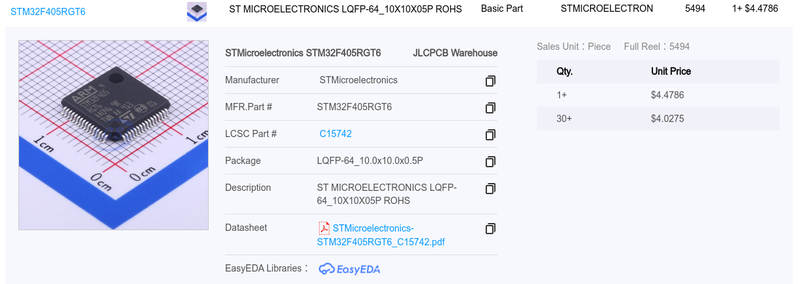Difference between revisions of "Stm32Dev - first version"
imported>Lth |
|||
| Line 1: | Line 1: | ||
| − | [[Category:STM32]][[Category:STM32 Development Board]] | + | [[Category:STM32]][[Category:STM32 Development Board]][[Category:STM32 Hardware Development]] |
My interest in [[STM32]] got triggered by a "failed" project using an [[ESP32]] processor. One of the requirements of that project was extremely precise - and quick - SPI timing and I simply never managed to implement that in a controlled manner. Because of that and the fact that [[JLCPCB]] carries a lot of [[STM32]] variants in their parts inventory, I decided to make some experiments with these processors. | My interest in [[STM32]] got triggered by a "failed" project using an [[ESP32]] processor. One of the requirements of that project was extremely precise - and quick - SPI timing and I simply never managed to implement that in a controlled manner. Because of that and the fact that [[JLCPCB]] carries a lot of [[STM32]] variants in their parts inventory, I decided to make some experiments with these processors. | ||
Revision as of 01:50, 12 December 2020
My interest in STM32 got triggered by a "failed" project using an ESP32 processor. One of the requirements of that project was extremely precise - and quick - SPI timing and I simply never managed to implement that in a controlled manner. Because of that and the fact that JLCPCB carries a lot of STM32 variants in their parts inventory, I decided to make some experiments with these processors.
First step was choice of processor. There is an insane amount of STM32 variants but based on my needs and availability on JLCPCB as a "Basic Part", I settled on the STM32F405:
Schematic
Armed with the datasheet it was time to hack a schematic together in KiCAD:
Power Supply
Simple LDO at 3.3 V with decoupling. The choice of AMS1117-3.3 as LDO was based on it being available as a Basic Part on JLCPCB

